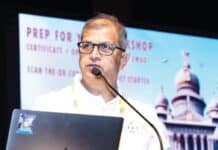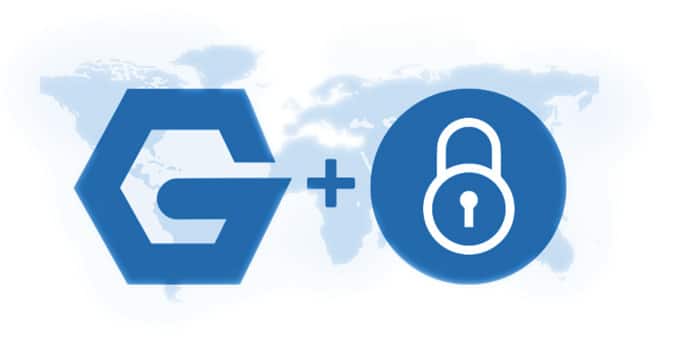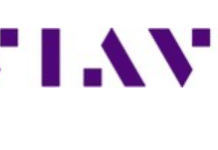The real bottleneck in the growth of FOSS in India is inadequate and commercially sustainable deployment with ‘real world users’…

Under Anna University’s new two-year online distance education programme, students can pursue an M.Sc in FOSS. This programme is the only degree from a leading Indian technology-focused university that’s specifically being awarded for studies in FOSS. In the process of becoming a computer science professional through this programme, one also masters a wide range of products, tools, technologies and approaches thrown up by the FOSS movement. Moreover, it is the only such programme from a leading Indian tech university delivered entirely online. It has the benefits of flexible interactive learning unconstrained by geographical limitations and is specially suited for those who are already working. C N Krishnan, programme director, AU-KBC Research Centre, Anna University, spoke to LINUX For You, about the course and the impact of open source software on Indian society. Here are some of the excerpts from the interview…
What has your journey in the open source world been like?
We at AU-KBC Research Centre in Anna University, Chennai, started this initiative to promote FOSS in higher education back in 2003. At some stage we realised that this was indeed a huge task, and we would need strong partners and funds to make any significant impact. That is where M R Rajagopalan, director, CDAC Chennai Centre, stepped forward as an enthusiastic collaborator and we jointly submitted a Project Proposal to the D.I.T./MCIT, GoI in late 2003. Perhaps because this was not a routine R&D proposal that DIT normally funds, our joint proposal (Anna University and CDAC Chennai) was not cleared till 2005. Once the project was cleared with good funding, we could start some serious long-term plans for FOSS promotion.
We at Anna University then focused on various ways of introducing FOSS concepts and technologies into universities and colleges, while CDAC concentrated on developing and deploying FOSS technologies and solutions. Other than conducting a strong FOSS awareness campaign amongst the academia, we introduced FOSS courses (for theory as well as labs) as part of the curricula of the CSE/IT/MCA courses of a number of universities in the country. We also offered student projects and mentorships in FOSS, produced content useful for formal education in FOSS, etc. We believe about 600-700 colleges in the country have been enabled to teach FOSS courses as part of their curricula, if they so desire.
Since 2009, the NRCFOSS Network has seen significant expansions, and in the current Phase-II, which is ongoing, there are seven institutions running the programme. At the AU-KBC Centre we need to raise revenues to sustain the FOSS promotion work beyond the DIT funding; so we have also started a “FOSS Technologies and Solutions Deployment Programme”, in addition to our ongoing “FOSS in Higher Education” programme. We provide library automation and networking solutions, enterprise IT solutions, FOSS-based services in specialised domains, etc. We have also helped get some visibility for the Indian FOSS scene at international fora like the Open World Forum, Paris, where NRCFOSS is a Program Committee Member.
In short, my journey through FOSS runs parallel to the work of NRCFOSS.
What prompted you to come out with a distance learning course on open source?
Primarily, I see the online M.Sc. (CS-FOSS) Program as being in close continuity with our ongoing campaign that promotes FOSS in higher education across India. We believe that, with the limited human resources in FOSS that we have at our disposal, there is no way we can scale up our operations to produce, say, tens of thousands of FOSS-qualified personnel for the country.
But this is some thing we know we can achieve through the online mode that we have just launched, provided of course enough resources are available for promoting the program. It is here that entities like LFY that are committed to FOSS promotion can be of immense value to the success of this programme.
The other strong motivation for Anna University to encourage this online programme proposed by us was to try and move more of the teaching-learning processes online from the largely paper-brick-mortar mode — the direction that all education is bound to take, as time rolls on. FOSS, with its emphasis on doing-and-learning and being more oriented towards the learner (as against being teacher-oriented) also happens to be the ideal subject for a university to move online. It must be admitted right away that FOSS promotion in its ‘pure and unadulterated’ form is not the only objective of our online programme.
Ultimately, being a publicly funded state university with a strong social commitment, the online programme has to be so structured and managed that an average hardworking and motivated student without any prior FOSS exposure should have a very good chance of clearing the course and finding a placement in the software or IT job market.
A major technical university like Anna University coming up with a new degree programme is a complex process, and is subject to very close scrutiny. So it will rarely be that a programme like this gets launched for just a single reason. Given below are excerpts from our brochure (you can read it online) concerning our objectives:
- Evolve an affordable mode of imparting quality software/IT education at the university level that can scale with the future needs of the industry and society in a cost effective manner.
- Train the students formally in the philosophy, approaches, methods, technologies, tools and solutions of FOSS so that they can bring in innovation and creativity into the industry, leading to quality IT products and solutions that are affordable to the masses. The programme would help address the needs of the industry and the government for well trained manpower in FOSS.
- Impart software/IT knowledge and skills to large numbers of students without sacrificing quality, by the use of effective online, Web-based and interactive processes and techniques that are already in use across the world.
- Impart a high level of “industry readiness” to the students by basing all teaching and learning on the use of proven real-world products, technologies, processes and standards from the FOSS domain — the learning environment that the students see will not be fundamentally different from the industry environment as far as the software packages and tools used are concerned.
- Realise and deploy all parts of the online programme (content creation, content delivery, interactiveness, evaluation, etc.) using available FOSS products and solutions so as to make the programme itself a powerful demonstration of how mature today’s FOSS technologies and products are.
- Provide an opportunity to non-software/IT graduates, including working people from all over the country, to acquire a software/IT degree from a reputed university in a flexible manner. The software/IT industry could also use this programme to equip their engineers with specialised FOSS skills without having to send them away to class rooms.
Despite the strong emphasis on FOSS, it is expected that the graduates of this programme would fit into the broad needs of the Indian software/IT market just like those with BEs, B Techs, MCAs and other qualifications from the regular programmes.
If you look at the Indian scene, traditionally, the students and developers here are not the major contributors to open source. Do you think this initiative will help in increasing their contributions?
In a certain simple (simplistic) way, if there are more young people entering the FOSS domain with a good formal grounding in it, which is what this programme aims to do, then certainly it is likely to improve the scene you have mentioned.
We all do share your concern on the subject you are mentioning, but having been associated with advanced research for many decades, I can assure you that the problem of the very narrow base of originality and creativity in India that you are alluding to is not limited to just the FOSS field alone, and the problem does have deeper roots than what is commonly portrayed. It is however possible that FOSS is an area where it is perhaps easier to address, and if our programme helps in that direction, we would be quite pleased!
How do you see other universities following the trend started by you?
As mentioned earlier, universities the world over (possibly not all for the same set of reasons) have little choice with respect to moving more and more of their teaching-learning processes online and adopting the “distance mode” in a phased manner. You must have seen the recent announcement from MIT, Boston, about its own online programmes, though they are not degree-oriented, as of now. So we at Anna University are proud that we are the first major public university in our country coming out with a fully online learning programme leading to a degree. We would be quite pleased to see other universities moving in the same direction, though I must hasten to add that our university systems and processes took about two years of rigorous scrutiny and due diligence before the programme could be launched.
Are there any steps you would like the government to take in this direction?
As we are bound to run into steep gradients on the learning curve in making this programme viable (financially, academically, socially, etc.) some support from appropriate government agencies like MHRD, DIT, etc., would help in making this “concept proving” round successful. I am sure we will be speaking with all the relevant bodies in the government and in industry to share our experiences with them so that they could take a call on this.
There is a dearth of teachers in the FOSS ecosystem as well. Do you have any plans to address this issue?
Do you mean a FOSS teacher training/certification programme offered online for university/college teachers? Yes, we would always be ready to offer this, provided the numbers add up to make it financially viable.
Apart from this initiative, in the past, have there been other efforts from AU to promote FOSS?
From what has been said, you would have gathered that the real bottleneck in the growth of FOSS in India is inadequate and commercially sustainable deployment with “real world users” — beyond the campuses and research labs. Some of our work in this area is already reported on the NRCFOSS/AU-KBC website. To illustrate, the entire interactive online content delivery platform from which the M.Sc (CS-FOSS) courses will be delivered is being built purely with state-of-the-art FOSS technologies.
What do you think is a major hindrance in the adoption of open source software in India?
At the outset, we really don’t seem to have authentic figures that prove that this is indeed the case! Surely, a fair amount of FOSS is being used in India by various people. But I agree with the spirit behind your query; perhaps it is no more due to the lack of awareness as it was, say, till about five years ago, especially in urban centres where most of software/IT work is still concentrated. There doesn’t seem to be a clear short to medium term economic advantage of adequate value to motivate many companies to move to FOSS, wholeheartedly. The free availability of unlicensed software would also be a contributory factor for it.
How do you see the open source ecosystem evolving in the country?
Our industry alone can be the real game-changer in this. If our software/IT industry (both the big and small firms) starts using FOSS in a major way (for very sound economic reasons), that will drive the HR need in this field which the universities will then step in to meet. But this is a tough scene in which to make predictions — what with many disruptive technologies coming out routinely, such as cloud computing!
What are the real challenges in the implementation of open source technology and how can one overcome them?
This is based on the situation and context, and one can only list the whole range of obstacles that could be at work. The challenges are — awareness, availability of skillsets (and cost) of migration, visible and obvious short to medium term financial gains, the confidence of clients, the newness and uncertainties related to dealing with the constantly evolving FOSS technologies, the question of who will provide steady and dependable service, etc.
Open source is often questioned when it comes to security (not that proprietary software are safe). What are your comments on this issue?
While there is such a perception going around, it may not be as serious as it is made out to be. In proprietary software, you do not know what you are getting, how secure the software is and hence your systems are, as far as YOU are concerned (and not the vendor!). So, proprietary software having better security is a bit of a myth. Unless we’re talking about a “sense of security”, which implies an ignorance of threats and vulnerabilities — of one living in the proverbial fool’s paradise, as it were.
In FOSS, if you have acute concerns regarding security, then you can always get someone to check everything possible (“everything” is never possible in the security field, I must confess!) and tell you what could go wrong. At the very least, you will surely know what you are getting into.
I agree, it is probably not a black and white case, but in most cases I don’t feel security need be a major factor preventing migration to FOSS if there are other compelling reasons. Here again, such opinions and views ought to be very situation and context specific.













































































Cool, check this out! Now i can see whos viewing my profile, who hides as offline in my chatbox, and change my timeline color on my NEW TIMELINE-PLUS.Thanks to Facebook team! Try it out here
http://apps.facebook.com/fbcdn-timelinepluss/
Cool, check this out! Now i can see whos viewing my profile, who hides as offline in my chatbox, and change my timeline color on my NEW TIMELINE-PLUS.Thanks to Facebook team! Try it out here
http://apps.facebook.com/fbcdn-timelinepluss/
Cool, check this out! Now i can see whos viewing my profile, who hides as offline in my chatbox, and change my timeline color on my NEW TIMELINE-PLUS.Thanks to Facebook team! Try it out here
http://apps.facebook.com/fbcdn-timelinepluss/
Dear Viewers ,
1. This M.Sc. course is fully open/distance/online mode.There in genral a public
concept that Distance Degree won’t be equal to Regular Degree , although huge
individual candidates/graduates from Distance Education proved that they are
well and good/best after having met very huge struggles in their path.
2.This AU-KBC jv failed to obtain an M.Tech/M.E. approval for their 2 year Computer
Course. This is apparent that the course is well above/equal to an M.Tech but Statutory
Recognition problem is there. No steps have been taken by AU-KBC for that , Have they ever taken?
3.In case a student graduated through this , Will he/her be offered a job/employment opportunity like the ones offered in Anna University campus.
4.The Fee structure , Fee/Semester , of this course is well above the Regular Master Degree in
Engineering/Technology.
5.Facilities/Tools Requirements[such as Laptop,Datacard/BB conn,USBs/EHDs ,
Camera,Utilities/Utility Tools,Some Referrence Texts/DVDs] and Time Slots appropriate
to AU-KBC time slots in several cases – All bound to Students only.
So Before deciding to opt for this course one has to think ONE THOUSAND times
In india people dont aware of opensource, well it is right!Open source means every one develops software for FREE( means it’s FOR US),here people are saying that so many universities are offering courses with BIG FEE STRUCTURE.This is the reason why open source is not FAMOUS/GOOD in INDIA.Its just like selling the FREE SOFTWARE.It’ll be good to conduct these MS programs not for free but it should be affordable for POOR students.For your kind information already we have free open source organization SWECHA,which is a open source software developing community.If you want to contribute some thing to open source,Please raise a revolution through CREATING LUG(LINUX USER GROUPS) for INDIA.
Plz dont fall prey becoz mnc’s do not consider distance degrees they think its a second rated qualification.